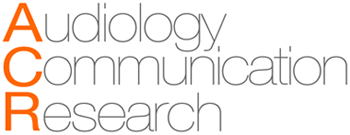ABSTRACT
Purpose
To verify the effectiveness of an intervention with recreational activities that aim to develop self-advocacy and citizenship as a practice of empowerment for adolescents with hearing impairment.
Methods
This is a pre- and post-intervention experimental study with a quantitative and qualitative approach. Four oral hard-of-hearing adolescents aged between 12 and 17 years, users of hearing aids and/or cochlear implants, participated in this study. Five face-to-face meetings were held, in which topics related to self-advocacy were addressed through recreational activities. The Self-advocacy Checklist “I can” and the Classroom Participation Questionnaire (CPQ) were applied pre- and post-intervention. The Social Skills Inventory for Adolescents (IHSA-Del-Prette) and the Wechsler Abbreviated Scale of Intelligence (WASI) were also used. The data were analyzed utilizing qualitative and quantitative methods.
Results
In the Frequency Indicator of the IHSA-Del-Prette, all participants were classified as low average or below average. In the WASI, which analyzed performance IQ, all participants were classified as average. Differences were observed when comparing the Self-advocacy Checklist “I can” pre- and post-intervention, especially regarding hearing and hearing loss and the use of hearing devices. In the CPQ, worsening was observed in some domains, such as teachers' understanding and negative aspects.
Conclusion
The intervention program with the structure proposed in this study was efficient in developing self-advocacy and citizenship skills to empower adolescents with hearing impairment.
Keywords:
Adolescent; Hearing loss; Self care; Empowerment; Self-help devices

 Thumbnail
Thumbnail
 Thumbnail
Thumbnail

